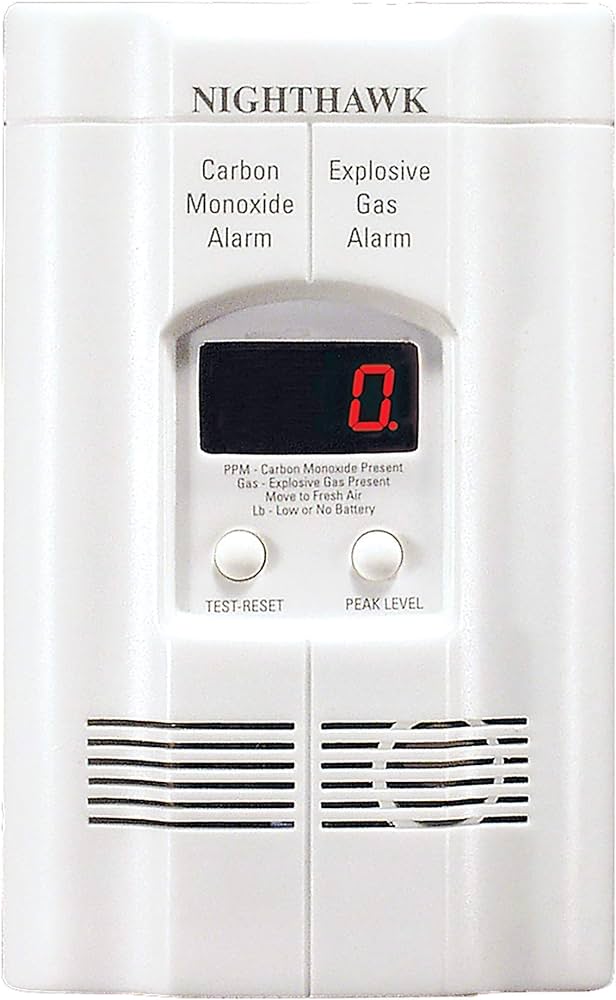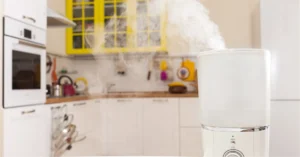Air purifiers cannot detect carbon monoxide as they are designed to remove airborne pollutants, not detect gases. However, there are specific carbon monoxide detectors available that can monitor and alert individuals of its presence in the air.
Carbon monoxide detectors are essential for ensuring the safety of homes and workplaces as they can detect this colorless and odorless gas, which can be fatal if present in high concentrations. By promptly detecting carbon monoxide, these detectors provide a vital early warning system, giving individuals the opportunity to evacuate or ventilate the area before being exposed to high levels of this dangerous gas.
Understanding The Dangers Of Carbon Monoxide
Carbon monoxide (CO) is a colorless, odorless, and tasteless gas that poses serious health risks if inhaled. It is often referred to as the “silent killer” due to its undetectable nature. The importance of carbon monoxide detection cannot be emphasized enough, as exposure to high levels of CO can lead to severe health complications, including organ damage and even death.
CO is produced by the incomplete combustion of fuels such as gas, oil, coal, and wood. Common sources of CO in residential settings include faulty gas appliances, car exhaust fumes, and blocked chimneys. Since CO cannot be detected through the senses, having a reliable carbon monoxide detector is crucial in ensuring the safety of your home and loved ones.
Carbon monoxide detectors work by continuously monitoring the air for any presence of CO. These devices often employ different technologies, such as electrochemical sensors or biomimetic sensors, to detect the gas accurately. When elevated levels of CO are detected, the detector will sound an alarm, providing an early warning of potential danger.
In conclusion, understanding the dangers of carbon monoxide and investing in a reliable carbon monoxide detector are essential steps in protecting your home from this silent killer. Regular maintenance and testing of your detector are also necessary to ensure its proper functioning. Keep your loved ones safe by being proactive in CO detection and prevention.
How Do Air Purifiers Work?
Air purifiers are designed to improve indoor air quality by removing pollutants and allergens from the air. They do this through a series of filtration systems and technologies. The primary function of an air purifier is to filter out particles such as dust, pet dander, pollen, and mold spores. These particles are often the cause of respiratory problems and allergies. Some air purifiers also have the ability to eliminate odors and capture volatile organic compounds (VOCs) from the air.
However, it is important to note that air purifiers have limitations. While they can effectively remove particles from the air, they may not be able to detect or remove gases such as carbon monoxide. Carbon monoxide is a colorless and odorless gas that can be extremely dangerous if inhaled in high concentrations. To detect carbon monoxide in your home, it is recommended to use a separate carbon monoxide detector. This device is specifically designed to alert you when carbon monoxide levels are unsafe.
The Potential Of Air Purifiers To Detect Carbon Monoxide
Air purifiers have become a popular choice for improving indoor air quality, but can they detect carbon monoxide? This article aims to explore the different technologies used in air purifiers and their potential in detecting this deadly gas.
When it comes to carbon monoxide detection, sensors play a crucial role. Many air purifiers are equipped with advanced sensors that can detect and monitor the levels of carbon monoxide in the air. These sensors constantly analyze the air for the presence of carbon monoxide and alert users if the levels become dangerous.
There are various detection technologies employed in these air purifiers, including electrochemical sensors, metal oxide sensors, and biomimetic sensors. Each of these technologies has its own strengths and limitations, but they all aim to provide accurate and reliable detection of carbon monoxide.
In conclusion, air purifiers can indeed detect carbon monoxide, thanks to the use of advanced sensors and detection technologies. If you are concerned about the presence of carbon monoxide in your indoor environment, investing in an air purifier with carbon monoxide detection capabilities can provide you with peace of mind and a safer living space.
Credit: www.bobvila.com
Benefits Of Air Purifiers With Carbon Monoxide Detection
Air purifiers with carbon monoxide detection provide an extra layer of protection, ensuring the safety and well-being of your household. With the ability to detect this odorless and potentially harmful gas, these devices offer peace of mind for homeowners. By continuously monitoring the air quality, they alert you of any dangerous levels of carbon monoxide, allowing you to take immediate action.
These air purifiers offer enhanced safety features, which are particularly beneficial for vulnerable individuals such as children, elderly, or those with respiratory conditions. Their advanced sensors and alarms ensure that you are promptly aware of any carbon monoxide leaks in your home.
Investing in an air purifier with carbon monoxide detection is an effective way to protect your loved ones and maintain a healthy indoor environment. By combining air purification technology with the ability to detect carbon monoxide, these devices provide comprehensive safety measures.
Factors To Consider When Choosing An Air Purifier With Carbon Monoxide Detection
Understanding the different types of sensors: Air purifiers with carbon monoxide (CO) detection rely on different types of sensors to detect and measure CO levels in the air. The most common sensor types include electrochemical, metal oxide semiconductor, biomimetic, and infrared sensors. Each sensor type operates differently, so it is important to understand how they work and their accuracy.
Evaluating the effectiveness of carbon monoxide detection: When considering an air purifier with carbon monoxide detection, it is crucial to assess the effectiveness of the detection mechanism. Look for models that have been independently tested and certified for accurate CO detection and have a low false alarm rate. User reviews and ratings can also provide insights into the reliability of the detection system.
Comparing features and prices of air purifiers on the market: As with any purchase, it is essential to compare the features and prices of different air purifiers with CO detection. Consider factors such as the filtration system, room coverage, noise levels, maintenance requirements, and additional features. Evaluate the product warranties and customer support services offered by the manufacturers as well.
Frequently Asked Questions
How Can You Detect Carbon Monoxide?
Carbon monoxide can be detected using carbon monoxide detectors. These devices are designed to detect the presence of carbon monoxide gas and alert you to its presence. It is important to have carbon monoxide detectors installed in your home to ensure the safety of you and your family.
Is There An Air Purifier That Removes Co2?
No, air purifiers do not remove CO2. They are designed to remove airborne pollutants like dust, pollen, and pet dander. CO2 is a natural component of the air and cannot be effectively filtered by an air purifier.
What Do Air Purifiers Detect?
Air purifiers detect and remove harmful particles, such as dust, pollen, mold spores, pet dander, and smoke, from the air you breathe.
Can Air Purifiers Detect Gas?
Air purifiers cannot detect gas as they are designed to target airborne particles such as dust and allergens. They do not have the capability to detect or remove gases like carbon monoxide or methane. Using a gas detector or alarm system is recommended for gas detection in your home or office.
Conclusion
Air purifiers are powerful tools for improving indoor air quality; however, they cannot detect carbon monoxide. It is crucial to prioritize safety by installing a carbon monoxide detector in your home. Remember, carbon monoxide is an odorless and colorless gas that can be deadly.
A well-functioning air purifier combined with a carbon monoxide detector can help ensure a healthy and safe living environment for you and your loved ones. Stay aware and take the necessary precautions to protect yourself from this silent threat.




